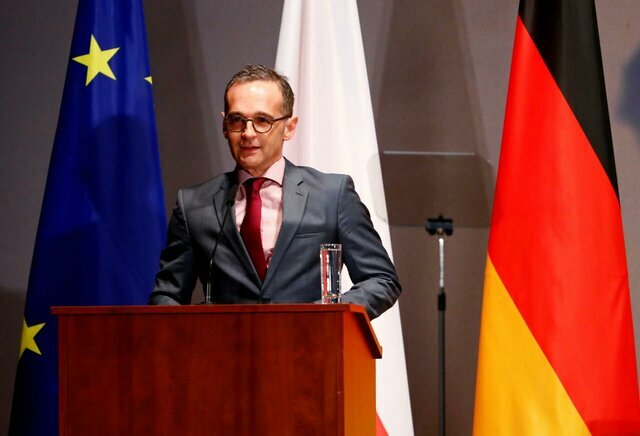It is essential to implement nuclear deal, German FM says

German Foreign Minister Heiko Maas said on Monday that it is essential to implement the 2015 nuclear deal, officially known as the Joint Comprehensive Plan of Action (JCPOA).
“We in Europe agree that this deal is crucial for our security… We are conducting negotiations again exactly for this purpose,” Sputnik quoted Maas as saying upon his arrival at the Foreign Affairs Council of EU ministers in Brussels.
On May 8, Iran officially announced that it stops selling stockpiles of enriched uranium and heavy water for 60 days. However, Iran warned if a conclusion is not reached in this time period, it will take other measures step by step and will accelerate its uranium enrichment activities.
Iran stated it would no longer observe limits for its stockpile of low enriched uranium (currently capped at 300kg under the JCPOA) and heavy water reserve (capped at 130 tons).
“This announcement is for 60 days. We have announced to the other side, the five countries [Germany, France, UK, Russia and China], that if they come to the negotiating table in 60 days and we reach a conclusion and safeguard our main interests which are oil [sale] and banking relations, we will return to the previous situation of May 7, 2019,” President Hassan Rouhani told a cabinet meeting on May 8.
Under the JCPOA, endorsed by the UN Security Council Resolution 2231, Iran was tasked to put limits on its nuclear activities in exchange for termination of economic and financial sanctions. However, since Trump pulled the U.S. out of the JCPOA, the European countries cut banking ties with Iran, stopped purchasing Iranian oil, annulled agreements, and their companies left Iran one after another.
In an interview published online by Le Parisien on Saturday, French Foreign Minister Jean-Yves Le Drian said that it is a pity that the U.S. is not honoring its commitments under the nuclear deal.
Le Drian warned that the chain of reactions on the JCPOA could intensify into a “bellicose spiral”.
The top French diplomat described Iran’s decision to suspend sale of excess uranium and heavy water as a “bad reaction” in response to a similar “bad decision” by Washington to not honor its commitments, according to Press TV.
NA/PA
Leave a Comment